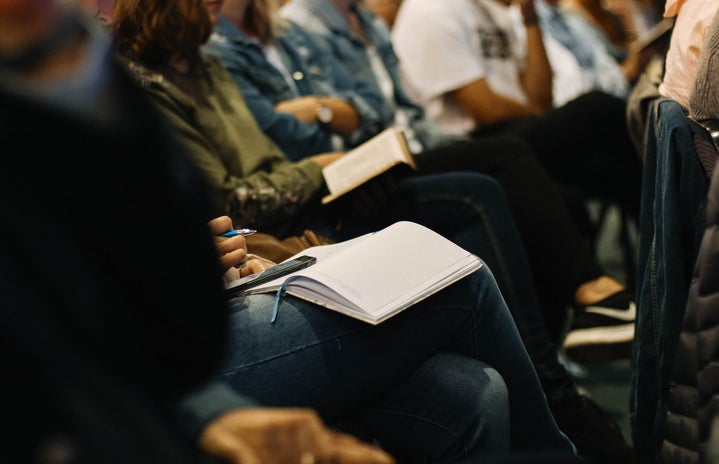No matter how many years of schooling we have under our belts, every student at some point is going to try to switch up the way they prepare for tests to gauge the ways that they can process, save, and retrieve the necessary information covered in both lectures and readings. While there are countless links to articles and web pages that list out “the best studying methods” for college students, the effectiveness of what to do and what not to do varies with each student. With help from The Huffington Post and other online outlets, I decided to put a few of these methods into practice to see whether or not they made a difference on how well I was able to focus or if I was able to better commit subject matter to memory.
No music or listening solely to instrumentals
It’s been said that repeatedly that listening to music while attempting to study can impair our ability to focus on what we’re trying to study. We become easily distracted by looking for different songs to listen to or by repeatedly changing up playlists.
My take: It comes down to how well you can discipline yourself to not play with Spotify or Pandora. I admit to being guilty for wasting time because I look for ways to change up what I’m listening to. Regardless of whether or not the music was just instrumentals, I would focus more on the song rather than what I was reading.
However, if you do need to have some sort of white noise to drown out distracting sounds or just to get you in the study zone, I highly recommend trying soundrown.com. Soundrown is an online white noise generator (also available on the App Store) that offers different background noises— like the beach, a fireplace, etc.—that are adjustable and do a good job of cancelling outside noise from your surroundings.
Changing study areas
According to the New York Times, cognitive scientists suggest that switching up study spaces helps retain information. Memory is correlated to location, and by making use of different study areas, the likelihood of remembering what is learned is increased.
My take: Libraries, though a stereotypical study spot, can help motivate you to stay focused. I found that if people who were intent on getting work done surrounded me, I would stay more productive. But I also found myself dozing off from how quiet the library is. I then tried Starbucks, where I was surprised to find how alert I was and how much more material I was able to cover in the same amount of time.
Caffeine
College students bleed caffeine. Whether it comes from coffee or energy drinks, we consume loads of it on a regular basis to simply wake us up, get through the day or to power through a late night of studying. A caffeine crash, however, is inevitable and will not help studying. In all actuality, caffeine simply keeps you more alert, but has no effect on your cognitive abilities. Your memory will not improve, nor will complex reasoning.
My take: Try not to rely on caffeine to help me stay awake while studying. If you find yourself dozing off, look for other ways to help you wake up, like splashing cold water on your face or listening to some upbeat music for a few minutes. Caffeine is not a replacement for sleep; if you need to take a nap, take one before you start studying and after you drink coffee. You will have given your brain some time to rest and you will wake up alert because the caffeine will be moving in your system by now.
Putting away mobiles, blocking social media
You already know the answer to this one.
PUT YOUR PHONES AWAY. Live tweeting or “Instagramming” your load of notes and textbooks is not going to improve your grade—reading them is. If you find yourself studying with a friend, make a point to change each others passwords to unlock them for the time being to help avoid distractions. If need be an you absolutely need to make a call of answer a text, they can unlock your phone for you for a few minutes and you can resume with your studying afterwards.


